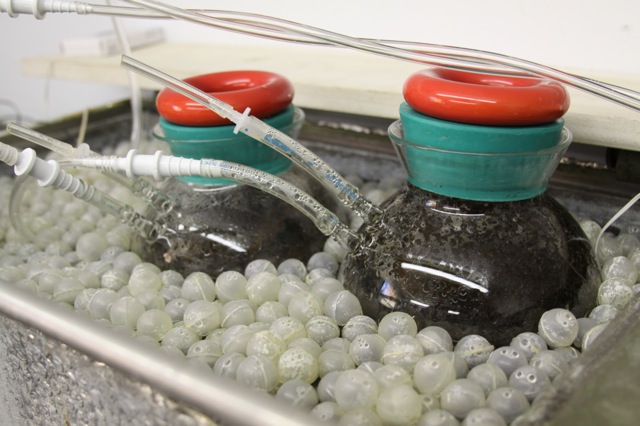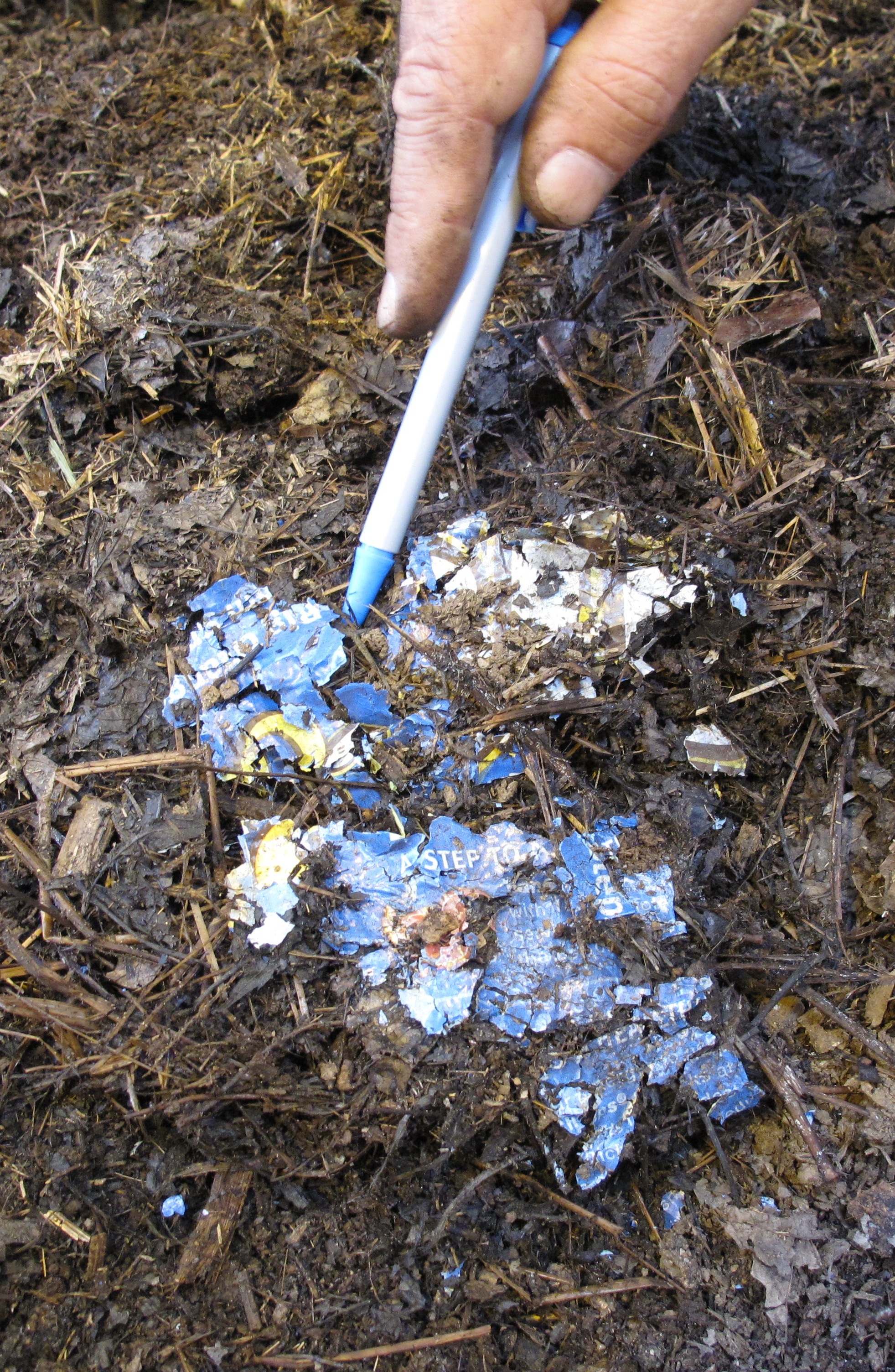Biodegradability & Compostability
Composting Decay: Composting is an instance or type of biodegradation. It may differ from soil and aquatic backgrounds due to different stress factors among them episodic high heat levels and depressed oxygenation rates. High temperatures often speed biological reactions but only if other factors are commensurately optimal. It is therefore a challenge to produce a representative compost environment.
Traditional Scientific Validation: To meet the demand for validation of bio-products, a set of early, industry standards evolved (ASTM, EN and ISO), not more than 2 decades old, and have been applied to qualify compostability. This approach helped bring structure and a semblance of regulation to the burgeoning biodegradable plastic movement and also bolstered consumer confidence. More recently, however, consensus has disappeared and new methods reflecting system ecology are being sought. Current evidence shows that these early standards were crafted enthusiastically to accommodate new bioplastic polymers, rather than to meet broader ecological conditions. The concept of the ecosystem property of compost defining biodegradability was largely overlooked. This has resulted in a crisis.
Challenge to Standards: Since 1995, the standardized protocols ASTM D6400 (USA) and EN 13432 and ISO 14855 (Europe) dominated validation and labeling of bioplastics. These methods were crafted largely to fit R-PLA molecules and for these and other reasons are no longer generally accepted by scientists as true compostability tests. To partly deflect concerns, Belgium launched a “Home-Compostability” label (testing at 30C), and in America the ASTM-D6400 certification process was renamed to “Industrial Composting Only”. These well-intended efforts have been met with increasing skepticism and several agencies and countries have defected from agreements, especially Germany.
compost-bag
Compostable vs. Biodegradable: Composting must be viewed as a subset of biodegradation and it is therefore not logical to construct compostability validation to be a stricter set of rules than operate in nature. The problem that this mat cause is evidenced in bio-plastics having fixed melting points that require exposure to high temperatures to trigger hydrolysis before becoming degradable. ASTM 6400 incorporated pre-hydrolysis steps into the overall standard, obscuring the underlying factors. The result was that the public started rejecting PLA bags and utensils, since when exposed to normal composting, high heat hydrolysis was under-efficient. Credibility of the industry and the standard makers began a decline.
Industrial vs. Other Composting: In Nature, biodegradability is not essentially temperature limited in the rate of reactions over a broad range of 5 – 70C. Extreme high heat composting (such as found with in-vessel systems) may even inactivate cellulase enzymes and therefore restrict degradation of even regular paper (resulting in a new artifact and a new standard for it called “extreme high heat” compostability). These are artifacts of industrialization of biological properties.
New advancements in bioplastics are taking place, including polyesters such as PVA and PVOH’s which may degrade well in a broader range of temperatures. New forms of PLA are recognized that do not possess the limiting thermal-transition (Tg) factor. Unfortunately, in the foreseeable future, any bioplastic may be seen as foreign matter contaminate in composting.
Woods End Laboratory possesses skilled awareness of this “work-in-progress” for achieving high-quality scientific validation of biodegradable products at temperatures other than accepted industrial norms.
Strength of Satisfied Clients: Woods End’s clients in biodegradability testing include: DuPont, FritoLay, KraftFoods, Natureworks, DowAgroSciences, Novamont, Pepsico, Boise, Nordenia, Huhtamaki, Toray, US Army Environmental Center, Weetabix — and many more.
The Woods End Bio Standard: As of 2017 Woods End has completed work with several clients crafting a new compostability test process using ambient environments of know soil and compost type. This will require that a candidate-compound for compostability validation pass test of at least 2 conditions.
for more information:
Write Woods End Labs.


